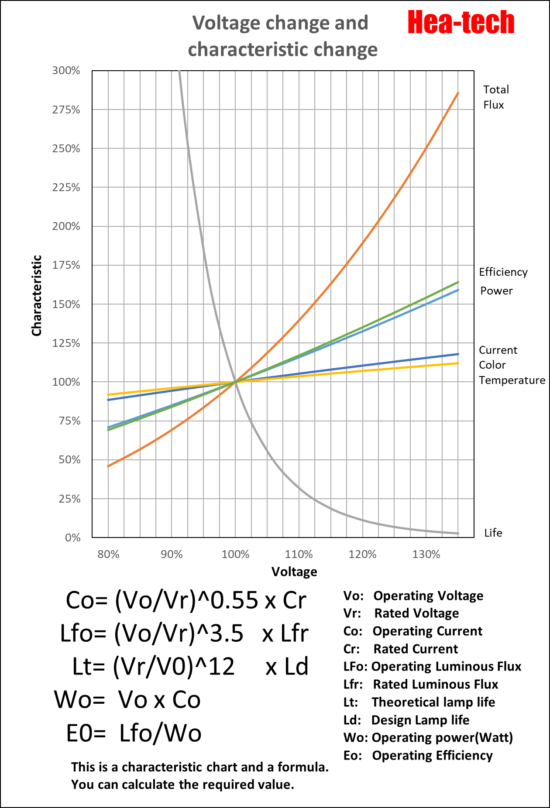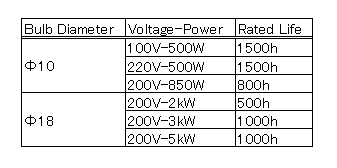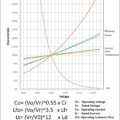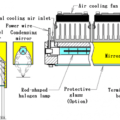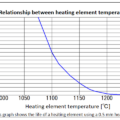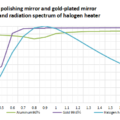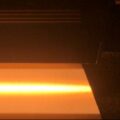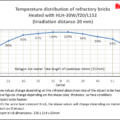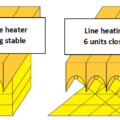The lifespan of a halogen lamp depends on the voltage used.
The rated voltage is defined as 100%, and if the voltage is lowered by 10%, the lifespan is extended by about 3 times, and if the voltage is increased by 10%, the lifespan is shortened by about 1/3.
Inrush current when the heater is lit also shortens the lifespan of the lamp.
The electrical resistance of the halogen heater when it is off is about 1/10~1/20 when it is on.
According to Ohm’s law, an inrush current of about 10~20 times the rated current is generated immediately after lighting.
If user want to blink frequently, user need to slow down the power supply voltage for 2 second as much as possible.
When the power control is changed from ON-OFF control to High-Low control, the lamp lifespan is extended by blinking operation.
The physical lifespan of a halogen lamp lies in the parts that make up the lamp.
Most of the causes of lifespan are broken filaments or seals.
The lifespan of the filament is determined in proportion to the filament temperature (colour temperature).
It takes about 1000 hours at 3000K and about 200-300 hours at 3200K.
The lifespan when the colour temperature is much lower than 3000K is calculated to be extremely long,
Even if the calculated lifespan of the filament is extended, the lifespan will not be as calculated due to other factors.
As a guide, the values of about 5,000 hours at 2600K and about 20,000 hours at 2200K are adopted.
In addition to the filament, the sealing part is also related to the life of the lamp.
If the temperature of the sealing part exceeds 300°C, the cause of life will change to the sealing part.
This is because the heat resistance temperature of the halogen lamp seal is 300°C.
If the lamp is used continuously without cooling, the temperature of the sealing part will exceed 300°C and the halogen lamp will be damaged.
Avoid using it at the heat-resistant temperature limit, and be sure to cool it down.
The following is the lamp lifespan of a typical line heater.
 HEAT-TECH Best Technology Online Shop
HEAT-TECH Best Technology Online Shop 
